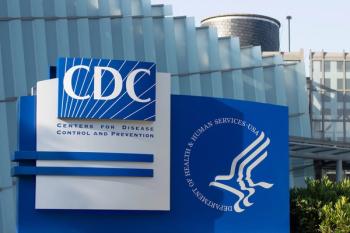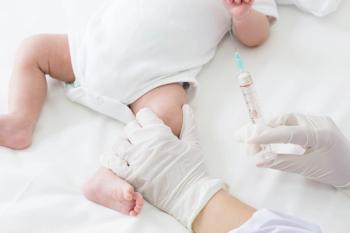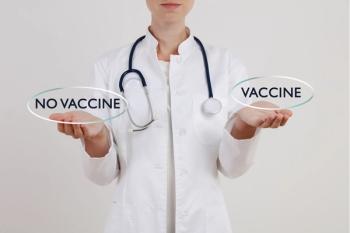
Contemporary OBGYN Journal
- Vol 64 No 05
- Volume 64
- Issue 06
Get ready for questions on measles booster
Mainstream media is raising the alarm on measles and posing a question about vaccine boosters. Are you ready to answer your patients’ questions?
As measles cases continue to climb nationwide,
While some patients may turn to Dr. Google for advice, others will hopefully turn to their own physicians for guidance on measles vaccination and boosters.
According to the Centers for Disease Control and Prevention’s (CDC) press office, there have been no official updates to the
In terms of measles, this includes adults born after 1957 who were vaccinated with just one vaccine dose or those who were not vaccinated with the live version of the vaccine.
Individuals who received two doses of the live vaccine in childhood are protected for life and don’t require any boosters for measles immunity, CDC notes, but individuals who received just one initial vaccine or a killed formulation should receive a second dose unless they have evidence of immunity.
So far this year,
Prior to the start of the measles vaccination program in 1963, roughly 3 to 4 million people got the measles each year, up to 500 of those patients died, and numerous others were left with lasting effects of the disease. Widespread vaccination in childhood has resulted in a 99 percent reduction in measles cases in the U.S., with the U.S. having declared measles eradicated in 2000.
Sterling N. Ransone, Jr., MD, FAAFP, a director of the American Academy of Family Physicians and a practicing family physician in Deltaville, Va., said there is also a push to increase surveillance of healthcare workers, particularly those born between 1957 and 1970 and may not have full immunity against measles due to only have one vaccination.
While some healthcare facilities may test titers during pre-employment screening, not all do, Ransone said. The concern then becomes what to do during an exposure, he said. Titers are typically drawn in any cases of exposure, he said, but those results take time, and healthcare workers are removed from frontline care for three weeks after receiving a measles vaccination.
Adults who are uncertain about their measles vaccination status should first try and find their immunization records or evidence of immunity, according to CDC. Without written documentation of the vaccination, CDC suggests revaccination or that titers be drawn to test immunity. Additionally, adults who know they were vaccinated with the killed formulation of the measles vaccine should be revaccinated with the current live MMR vaccine.
According to CDC, this is actually a small group of individuals-less than 1 million people were given the killed vaccine between 1963 and 1967-but it’s unlikely that individuals born in this period were informed either way of which vaccine formula they received.
Again, CDC suggests titers be drawn, or that the current MMR vaccine be administered, with the agency noting that an additional dose of the vaccine would not cause harm. In cases where revaccination is required, immunity takes two to three weeks after vaccination to develop, according to CDC. Even individuals who are fully vaccinated still run a small chance of contracting measles if exposed, CDC noted, but this chance is small and any infection would result in a milder form of the illness.
One recommendation that has changed for MMR vaccination, however, is the need for a booster dose for protection against mumps. Mumps cases are at their highest in a decade, with 736 cases in 41 states already in 2019. Cases have been rising since about 2015, according to the CDC, with the largest jump in cases among adults aged 18 to 22. Many outbreaks are centered at universities, and recent studies have suggested there is evidence of waning immunity and suboptimal initial vaccine effectiveness. A third dose of the MMR vaccine has been suggested for years by CDC’s Advisory Committee on Immunization Practices and researchers, but the committee had stopped short of offering a blanket endorsement of the additional dose.
A third dose, suggested by many to boost immunity in outbreak clusters, was
Additional recommendations on the MMR vaccine-but in regard to measles-could still be forthcoming, with CDC ACIP expected to release interim adult guidance on measles vaccination in the coming days.
Newsletter
Stay informed and empowered with Medical Economics enewsletter, delivering expert insights, financial strategies, practice management tips and technology trends — tailored for today’s physicians.






